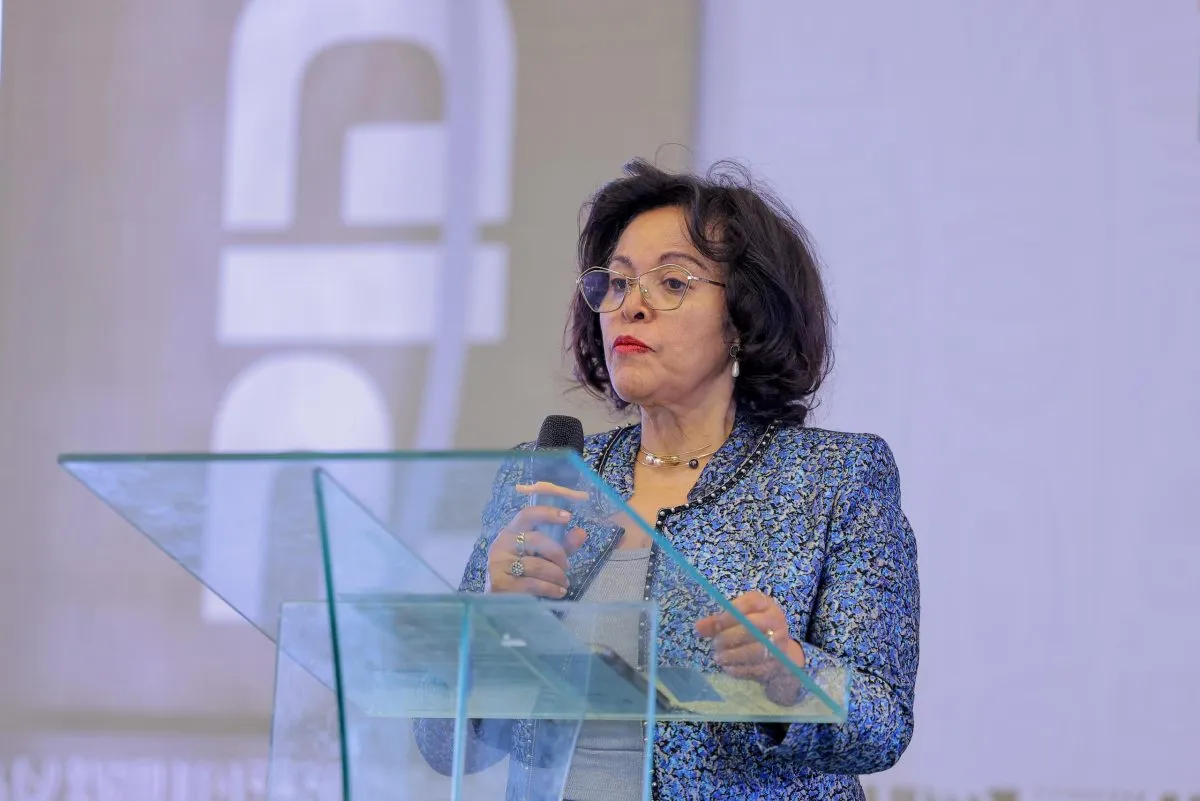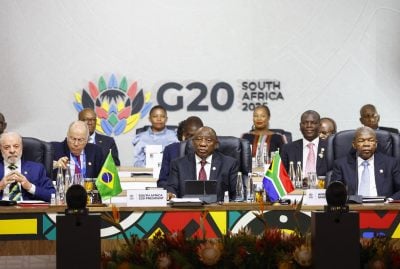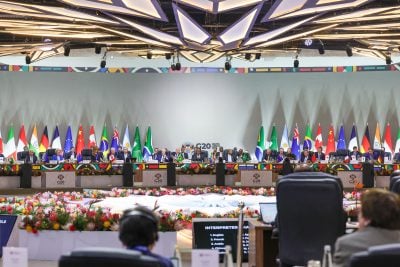This article was produced with the support of AUDA NEPAD
As the continent grapples with challenges ranging from energy access to transportation inefficiencies, the Programme for Infrastructure Development in Africa (PIDA) has emerged as a beacon of hope, providing not only the blueprint for a sustainable future but also the momentum for transformative change.
PIDA highlights the importance of strategic investments in Africa’s infrastructure as a driver of economic growth, regional cooperation, and sustainability. This agenda is endorsed by the African Union, the African Union Development Agency – New Partnership for Africa’s Development (AUDA-NEPAD), and key international partners such as the African Development Bank and UNECA. It is positioned as a critical pathway to unlocking the continent’s vast potential. However, while significant strides have been made, the road ahead is fraught with challenges that demand a renewed and collective commitment to overcome.
The PIDA framework
Since its inception in 2015, PIDA has focused on creating and supporting infrastructure projects across four key sectors: transport, energy, water, and information and communications technology (ICT). The PIDA Priority Action Plan 2 (PAP 2) outlines 69 transformative projects that aim to reshape the continent’s economic and social landscapes.
Among the most notable projects are the Grand Inga Hydropower Project, which, when completed, will be the world’s largest electricity generation scheme, and the vision of a navigable Nile River that would connect Lake Victoria to the Mediterranean Sea. These initiatives echo Africa’s long history of innovation and ambition, from the building of the pyramids to the modern-day infrastructure endeavours that could place Africa at the forefront of global development.
The results achieved over the past decade are compelling. Over 30m people have gained access to electricity, a critical foundation for economic growth. Roads and rail infrastructure have helped increase intra-African trade, with trade between African nations now accounting for 16% of the continent’s total trade. Additionally, significant progress in the water sector has enhanced agricultural production and trade, while ICT developments have accelerated Africa’s digital transformation, reaching over 25% broadband penetration across the continent. Notably, these projects have created over 160,000 direct and indirect jobs, fostering local economies and creating opportunities for millions of Africans.
However, as Bekele-Thomas aptly pointed out, the journey is far from complete. While these achievements are laudable, they represent only a fraction of what is needed to meet the continent’s infrastructure demands. With Africa requiring an estimated $360bn in infrastructure investment by 2040, the current mobilised amount of just $82bn underscores a substantial financing gap. This challenge, compounded by the difficulty of achieving project bankability due to perceived risks, requires a recalibrated approach to investment, risk mitigation, and financing.
The role of partnerships
The financing gap is perhaps the most significant challenge facing PIDA’s success. Infrastructure development requires massive upfront investment, and for many years Africa has struggled to attract sufficient private sector participation. Misconceptions about the risks involved in African infrastructure projects have deterred potential investors. However, as Bekele-Thomas emphasised, innovative financing mechanisms – such as blended finance, risk guarantees, and public-private partnerships – hold the key to bridging this gap. By combining public and private sector funding, these mechanisms can unlock substantial resources for transformative projects.
Regional cooperation is equally crucial. Effective coordination between African nations ensures that infrastructure projects align with both national and continental development goals. Initiatives such as the Trans-African Highway Network and the Lobito Corridor demonstrate how strategic regional investments in transport infrastructure can improve connectivity, reduce trade barriers, and foster economic integration across borders. The operationalisation of one-stop border posts in 32 locations has already facilitated smoother cross-border trade, reflecting how collaborative approaches can have immediate, positive impacts on Africa’s economy.
One critical area where regional integration is pivotal is in the energy sector. Despite significant strides, over half of Africa’s population still lacks access to reliable electricity. The Continental Power Systems Masterplan (CMP) aims to address this gap by providing electricity to 80% of the population by 2040, enabling intra-African electricity trade worth $136bn annually. To achieve this, the integration of renewable energy sources and interconnected power grids across Africa is necessary. Countries like Morocco and South Africa have already demonstrated success in renewable energy generation, but further integration of these energy systems, and overcoming grid challenges, will be essential for realising Africa’s energy potential.
Risk mitigation
As Bekele-Thomas noted, the perception of risk has been a major deterrent to private sector investment in Africa’s infrastructure. However, by utilising financial tools such as partial risk guarantees and blended finance, PIDA aims to create a safer environment for investors.
These tools reduce the perceived risks of projects and offer assurance that investments are protected, thus encouraging more participation from private investors. The challenge remains, however, in ensuring that these mechanisms are well-structured and effectively implemented to achieve long-term success.
Integrated planning
Another critical element for PIDA’s success is the need for integrated planning. As the CEO pointed out, infrastructure development cannot be siloed. It must take a holistic approach, considering energy, transport, water, and ICT as interconnected components of a broader development strategy. Effective infrastructure planning means that roads, railways, power plants, and communication networks must function as part of a larger system, supporting each other and ensuring maximum impact. Coordination across these sectors ensures that infrastructure investments contribute to long-term sustainability, resilience, and growth. Equally important is the principle of local ownership. Infrastructure projects should not be merely externally designed solutions imposed on African nations. Local communities must be at the centre of these efforts, ensuring that projects meet their needs and have local support. Public-private partnerships that empower local businesses and communities not only strengthen the sustainability of these projects but also promote inclusive development. When communities take ownership, infrastructure becomes not just a physical asset but a driver of social change and economic opportunity.
Transforming lives
At its core, PIDA is not just about constructing roads, railways, or power grids. The true essence of PIDA lies in its ability to transform lives. Infrastructure development is a means to an end: it is about enabling opportunities, creating markets, and empowering people. When infrastructure projects are designed with the needs and aspirations of Africa’s people in mind, they have the power to unlock untapped potential, fuel industrialisation, and promote prosperity across the continent.
As Bekele-Thomas emphasised, placing people at the centre of infrastructure development shifts the narrative from steel and concrete to hope and opportunity. Infrastructure is no longer just about physical structures – it becomes a catalyst for brighter futures and stronger economies. As PIDA continues its journey into the next decade, its focus must remain on people, communities, and long-term, inclusive development.
A collective path forward
The 8th PIDA Week presents a critical opportunity for Africa’s leaders, policymakers, and stakeholders to come together, reaffirm their commitment, and deliberate on actionable solutions for the future. While challenges remain, the achievements of the past decade provide a strong foundation for future progress. With the right mix of financing, partnerships, and regional integration, PIDA can help unlock Africa’s full potential, paving the way for sustainable growth and regional cooperation.
Africa’s future is inextricably linked to its infrastructure. By placing people at the heart of every project, PIDA will not only construct the physical infrastructure the continent needs but also lay the groundwork for a more prosperous, integrated, and resilient Africa.
For more information, please email [email protected], [email protected] or visit www.nepad.org

 Sign in with Google
Sign in with Google 



